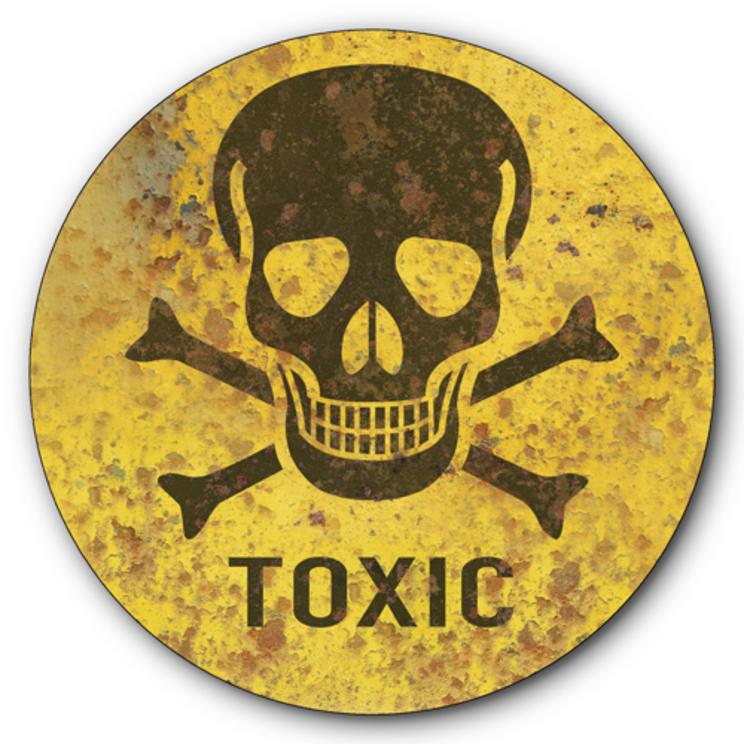Now another state is suing Monsanto for its toxic PCBs
This month, yet another state decided to sue Monsanto for the contamination that its toxic PCB chemicals caused.
“Superfund” sites are the title given to areas of land contaminated by such things as PCBs, or heavy metals, or radiation, usually a result of some kind of industrial activity: the government tasks the EPA with cleaning up and/or managing Superfund sites.
Now, the EPA office in charge of cleaning up the United States’ most toxic Superfund sites is led by an ex-Dow Chemical lawyer.

That’s the epitome of corporate collusion with regulatory agencies. Even more disturbing, this is not the government agency that would prosecute a corporation for polluting land, but the agency tasked with cleaning it up. So I guess these corporations don’t even want the land they tainted to be cleaned up.
At the beginning of this week, Ohio Attorney General Mike DeWine sued Monsanto, based on the the same reason Oregon is suing them, for their notoriously toxic PCB chemicals.
According to 9WCPO, a local Cincinnati news outlet:
“In Ohio, officials have found dangerous levels of PCBs in the Ohio River basin and Great Miami River basin, as well as other rivers and bodies across the state, including Lake Erie, according to the lawsuit.
“Ohioans deserve to enjoy their natural resources without contamination from these toxic chemicals, and we believe Monsanto should be held responsible for the damage it caused,” DeWine said in a written statement. “Our goal in taking this action is to protect Ohio, its citizens and its natural resources.”
Officials filed the lawsuit against Monsanto and two other companies in Hamilton County Common Pleas Court. The lawsuit alleges that Monsanto was negligent and created a public nuisance. Officials want the company to be accountable for harm to the environment and pay for PCB contamination cleanup.”
Dozens of lakes, rivers, and other bodies of water are contaminated with the toxic and difficult to dispose of chemicals Monsanto has manufactured for years until it became completely impossible to do so, with their dangers recognized.
In 1977, Monsanto discontinued the manufacture of PCBs, with the knowledge of their carcinogenic superpower becoming commonplace. They were banned in 1979, possibly to promote the false legitimacy of the Environmental Protection Agency who issued the ban.
An argumentative pillar of the suit is the fact that Monsanto knew about the dangers of PCBs as early as the 1930’s, and continued selling them anyway. It’s a very solid pillar to stand on.
In January, Oregon became the second state to sue Monsanto over this. According to March Against Monsanto:
“Monsanto has been on the defensive in recent years over the use and alleged safety of its popular Roundup weedkiller, but what most people don’t realize is that the biotech company has been involved in everything from the manufacturing of Agent Orange to white phosphorus.
While many of Monsanto’s worst chemicals, such as those mentioned above, have been used overseas as weapons of war, here in the United States another highly toxic problem has persisted: the company’s longtime use of PCBs, which have persisted in the environment and caused scores of untold damages.”
“Monsanto called the lawsuit “baseless” in a prepared statement.
However, the battle to hold the company responsible for PCBs has been taking place for many years, and Oregon’s neighbor to the north, Washington, has already filed a similar lawsuit, as have eight major West Coast cities.”
So some officials are trying to hold Monsanto accountable for this. In this era, people would be wise to not even trust these people who are allegedly trying to hold Monsanto accountable.
It’s fine to support the efforts of some politician who claims to be fighting against this, but when some betrayal occurs and the true character of a figure claiming to fight for the right thing is revealed, that should definitely be noted.
However, these efforts seem pretty genuine.
Remember: in 2018, we’ve entered yet another era of agrichemical, biotech monopolies.
We’ve got Bayer-Monsanto, Dow-Du Pont, Syngenta-ChemChina, and more. Money corrupts all, so be weary of trusting any person or entity claiming to oppose these very powerful, merging corporations.

